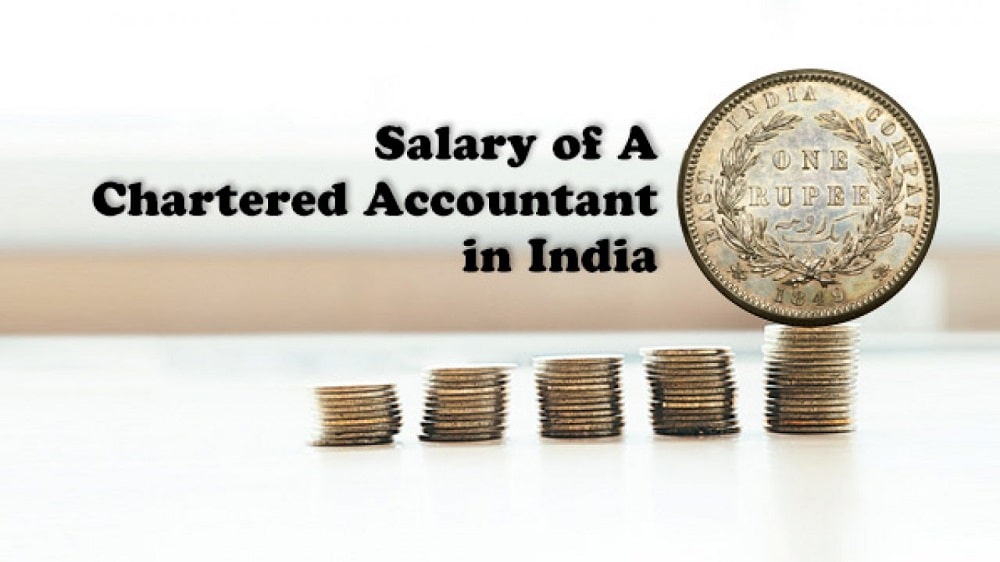Table of Contents
How much do chartered accountants earn in india?
A Chartered Accountant in India may expect to earn around $2,850 per month. What is the starting salary of CA in India per month?The lowest starting salary is 13,700 Indian Rupees (INR), and the most excellent possible salary is 44,700 Indian Rupees (INR).
This is the usual revenue received each month after considering transportation, lodging, and other conveniences costs. The amount of money chartered accountants make may vary significantly based on several variables, including the number of years of experience, the certifications, their gender, and the location they work in. The following is a complete overview based on several different considerations.
● Salary Range
What is the salary of CA per month?
Salaries for chartered accountants in India vary from a low of 13,700 INR per month to a high of 44,700 INR (maximum salary).
● Median Salary
To put it another way, if half of all Chartered Accountants make less than 29,600 INR per month, and the other half make more, the median pay for Chartered Accountants is 29,600 INR. If you look at the median, you’ll see the average wage. You want to be on the right side of the graph, with the people making more money than the median.
● Percentiles
The 25th and 75th percentiles are pretty close to the median. Chartered Accountant salary data suggests that 75% of CAs make more than 19,500 INR annually, while the remaining 25% make less. As can be seen in the diagram, 75% of Chartered Accountants make less than 38,700 INR, while 25% earn more.
Comparison of Chartered Accountant Salaries by Years of Experience
Years of experience are the most critical factor in determining one’s pay. There is a one-to-one relationship between the amount of experience you have and the amount of money you make. A Chartered Accountant with less than two years of experience might reasonably anticipate earning a monthly salary of around 16,000 Indian Rupees (INR).
A worker with two to five years of experience may expect a monthly compensation of 22,700 INR, which is a boost of 42% over the previous wage of 16,400 INR.
Compared to someone with just 2 to 5 years of experience, someone with 5 to 10 years of experience may anticipate a monthly salary of 29,800 INR. This is a 31% increase over the income of someone with only 2 to 5 years of experience.
A Chartered Accountant with 15 years of experience can anticipate earning 36,700 INR a month, which is a 23% increase over the salary of a CA with merely 5-10 years of expertise.
A person with fifteen to twenty years of experience may expect a monthly pay of 39,000 INR, a rise of 6 percent from the salary of someone with ten to fifteen years of experience. This is an increase from the wages of someone with ten to fifteen years of experience.
Those with over twenty years of experience in the workforce get a monthly salary of 42,700 INR, which is 10% greater than those with fifteen to twenty years of experience but only 5% higher than those with less than fifteen years of experience.
Hourly Wage for a Chartered Accountant in India
In India, an average hourly income of 160 Indian Rupees is earned. As a result, a typical Chartered Accountant in India takes home about 160 INR each hour.
Hourly Wage = Annual Salary ÷ ( 52 x 5 x 8 )
One hour of labor is equivalent to a specific dollar amount or the hourly rate. Typically, employment may be broken down into two broad types: those that pay a salary and those that pay by the hour. Jobs that pay a salary typically pay the same amount each pay period, regardless of how many hours are worked. Hourly wage jobs provide compensation based on the number of working hours.
The following formula converts a salary into hourly pay (assuming five working days a week and eight working hours per day, which is the standard for most jobs). Variations in weekly working hours and yearly vacation time might affect the hourly pay computation.
The numbers above are generally accepted as the norm and may be used as reasonable estimates. Salaried workers are exempt from overtime payments, but hourly workers are not. Unlike hourly workers, salaried employees are not often eligible for overtime pay.





